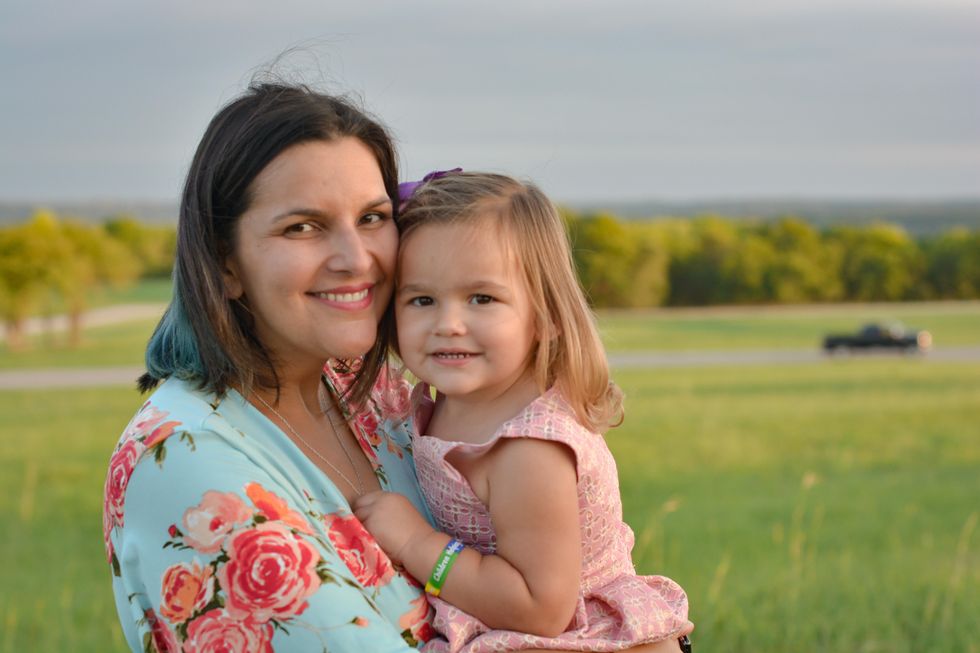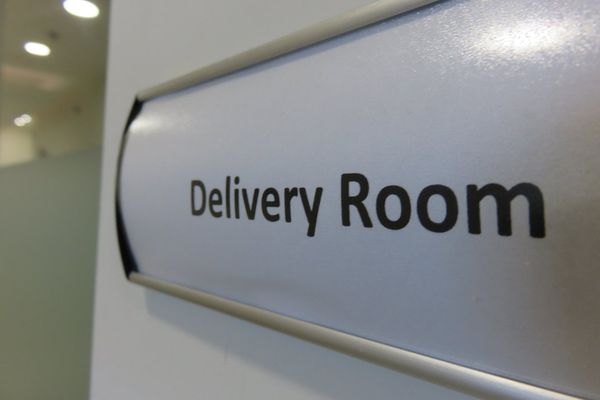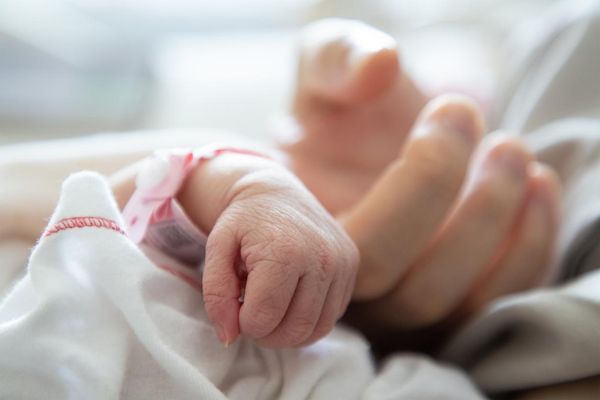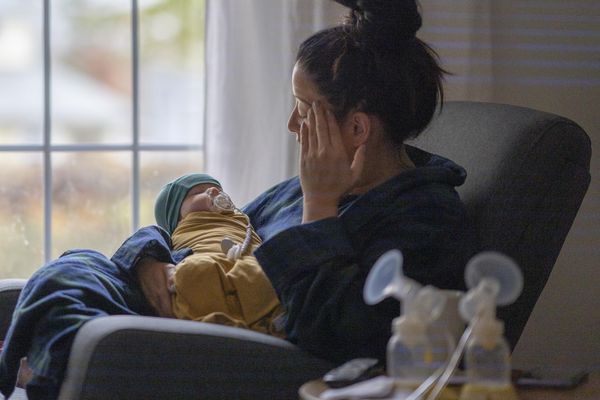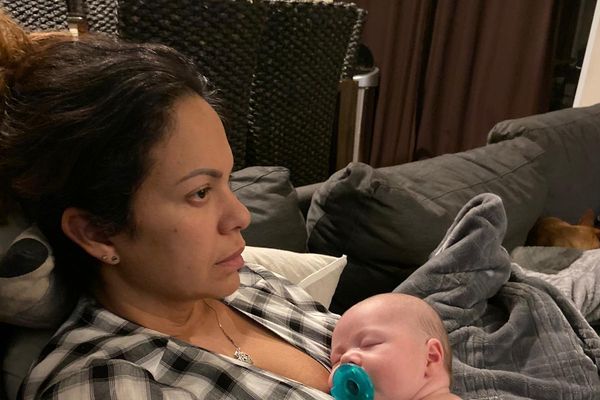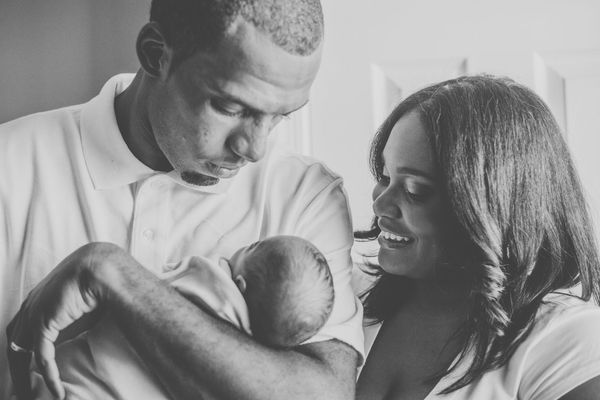Mental illness is prevalent in my family. My brother is bipolar. My grandfather was depressed. It goes on. So when I found out I was pregnant I was terrified of postpartum depression. I was ready for PPD, but it still took me by surprise when it hit.
My husband and I waited until we were older to have a baby—I was 36 when my daughter was born. We were excited, but nervous. No one can prepare you for the way a baby changes your life: no sleep, constant crying, the trials of breastfeeding… At the hospital, they had me take a quiz after she was born and my answers triggered a visit from the social worker. She gave me info on a local postpartum group and gave my husband some info on PPD warning signs to look for. I'd had to have a C-section because she was stuck (and I mean really stuck) so my husband took a little extra time off of work and a friend came to stay on the days he had to go in. I was lucky and thankful to have the help—I didn't know what I was doing and the baby scared me too.
At my 1 week postpartum OB visit, I mentioned that I was feeling down and worried about PPD. I was told that it was “too early" to diagnose it because of hormones and that if I still felt that way in a few weeks to call or bring it up at my 8-week visit. Breastfeeding was hard. Harder than I expected and painful. After a few weeks of persisting, we finally figured out the latch together and I thought things were going to be alright. But they weren't. We took her to the doctor for her weekly checkups and she wasn't gaining weight. We increased feedings, but still no weight. It was determined that I had low milk supply. So, we finally had no choice but to supplement with formula. I felt like a failure. What good was I if I couldn't even feed my baby?
I did everything I could think of to increase my milk. I drank special smoothies, bought and made lactation cookies and power bites, took supplements, drank special tea, pumped multiple times a day, but nothing worked. Every time I had to give her a bottle I felt like I failed her. I couldn't seem to soothe her when she cried, I felt like she didn't want me. As the stress, hormones and lack of sleep continued to compound, so did the feelings of helplessness and failure. I began to think that my baby and husband didn't need me and would be better off without me. I started to have thoughts of going in the garage and turning on the car.
One night when she was about 3 weeks old, my daughter woke up crying and I changed her diaper but she was squirming so much I couldn't get her back in her swaddle. I got so frustrated I started to cry and yelled at my husband to do it. I was afraid I would hurt the baby if I tried to put it on her again. He took over and brought her to me to nurse. My breasts had been hurting and with the pain and frustration I broke down. I wound up sobbing. What good was a mother who couldn't calm or even feed her child? I told him they would be better off without me. After all, she seemed to prefer to formula anyway. Then I said something about the garage.
The next day my husband made an appointment for me to see my PCP, who recommended I join a support group. I met other mothers who had struggled with their changing role into motherhood and that helped me to feel less alone. The medication I was prescribed has helped and I'm still taking it, because I'm terrified of falling back into the depression.
I love being a mom and I love my daughter more than I ever could have imagined. It scares me to think about where she would be if I had gone into the garage and ended it all. I don't want to miss anything in her life, and knowing that without the help I so desperately needed I could have missed the opportunity to get to know her breaks my heart. What I've learned is that this experience is not unique. And that there is not enough screening or support for mothers. We need all the help we can get, because far too many moms suffer in silence.

